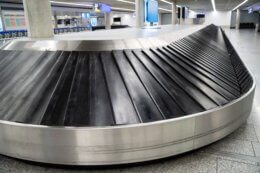
It may be a new financial year, but Australians continue to feel the sting of the cost-of-living crisis. According to new research from Compare the Market, more Australians have ditched health appointments, beauty treatments, car servicing and their gym membership in the last three months compared to the same time last year.*
Meanwhile, takeaway meals, the grocery budget, holidays, clothes shopping and family entertainment have also become casualties of rising costs.
The latest findings from Compare the Market found the number of people cutting back on health appointments jumped to 21.6% compared to 19.1% last year. Cancellations of beauty treatments, including manicures and skin therapies, are also on the rise, jumping from 20.5% in 2022 to 23.4% now. Fewer Australians are keeping their gym memberships (cancellations jumped from 12.1% last year to 13.2%), while alarmingly, the number of people ditching their car service has increased to 19.3% (up from last year’s 17.4%).
According to Compare the Market’s Noémi Hadnagy, many Aussies don’t have as much wriggle room in their budget, causing them to reconsider essential services.
“We’ve just been slapped with higher energy bills, the price of groceries continues to soar, the RBA continues to warn about further cash rate rises so our dollar isn’t stretching as far as it used to,” Ms Hadnagy said. “While it makes sense that people are tightening their purse strings for those luxuries like updating their wardrobe and beauty treatments, it’s quite concerning that people are cutting back on health appointments and car services.
“We know that the number of bulk-billing GPs is shrinking across the country, but people risk serious illness by not prioritising their health. Similarly, we know that some people are presenting to hospital emergency rooms with non-urgent conditions, which blows out waiting times and strains resources.
“It’s also important to keep on top of your car services, as they can detect defects with your vehicle early on, keep your car in tip-top shape and make it safer for you on the roads.”
Meanwhile, the data shows that more than 70% of Australians are ditching takeaway meals and eating out in favour of cheaper, home-cooked meals, while one in two Australians are cutting back when spending at the grocery store.
“Not only are we seeing a trend of Australians saying no to their favourite takeaways as a way to claw back cash, but households are also looking for cheaper alternatives when they’re shopping,” Ms Hadnagy said. “Our data shows that people are saving a quick buck by being disloyal to brands and purchasing items like cleaning products, milk, bread and pantry staples based on their price tag.”
Clothing items and shoes have also taken a hit, with nearly half of Aussies (47.8%) admitting that they’re spending less on their wardrobe. Similarly, more than 43% of people have opted for cheaper family activities, while around a quarter of people are delaying their home improvements or ditching their streaming services.
The data shows that Gen Z is seemingly taking the cost-of-living hit harder than any other generation, with a higher percentage of Zoomers admitting to cutting back on eating out and ordering takeaway meals, delaying travel plans, resisting Buy Now, Pay Later purchases, putting off beauty treatments, cancelling their gym membership and avoiding health appointments.
Millennials are the generation most likely to budget at the supermarket and ditch their streaming services, while Gen Xers are the most likely to cut back on family activities, home improvements, dental appointments, hair appointments, clothes shopping, recreational sports and getting their car serviced.
Interestingly, while Baby Boomers have cut back in all areas, they do so at a rate less than other generations.
“We know that people are doing it tough right now and while there would’ve previously been savings set aside for family outings, streaming subscriptions and even household renovations, that money is now covering higher mortgage repayments, increased rental payments, higher energy bills and bigger prices across the board,” Ms Hadnagy said. “The candle is burning at both ends right now and for many, cutting back on spending is the only way they’re staying afloat.”
Ms Hadnagy said there were ways that families could save without giving up the things they love.
Think outside the box when it comes to saving
While putting money aside for a rainy idea is a great way to save, it’s not the only one. With electricity prices rising, you may be able to claw back cash by switching to a cheaper plan. Similarly, if you’ve been hit with an insurance renewal, don’t just accept it. Be sure to do your research and see if a better deal is available.
Maximise your rewards
See if you’re eligible for any rewards or offers from your insurance providers, energy retailers, takeaway outlets, telcos and supermarkets. For example, you may earn points for every dollar you spend, which can be redeemed for services and goods. You may also be eligible for discounted movie tickets, entertainment options, dining experiences and more.
Shop around
Whether it’s your weekly grocery shop, insurance products, beauty services or more, be aware that different businesses set their own prices for their goods and services. Before making a purchase or locking in your next appointment, check for the discounts available and don’t pay more than you need to.
Switch, don’t ditch
Rather than giving up things completely, see if there are ways you can save in other ways. For example, are there alternatives to your current services with a smaller price tag? When it comes to insurance, are you paying for a higher level of cover that you don’t need? If the answer is yes, there could be room to save.
*Survey of 1,002 Australian adults, conducted in June, 2023.
For more information, please contact:
Phillip Portman | 0437 384 471 | [email protected]
Compare the Market is a comparison service that takes the hard work out of shopping around. We make it Simples for Australians to quickly and easily compare and buy insurance, energy and travel products from a range of providers. Our easy-to-use comparison tool helps you look for a range of products that may suit your needs and benefit your back pocket.








